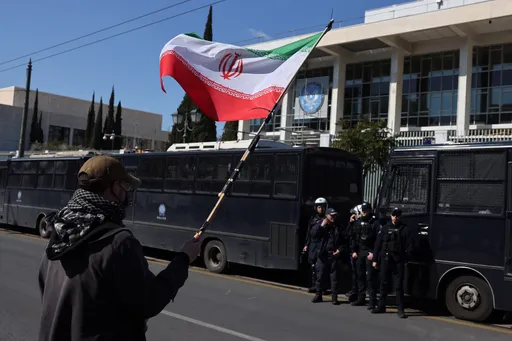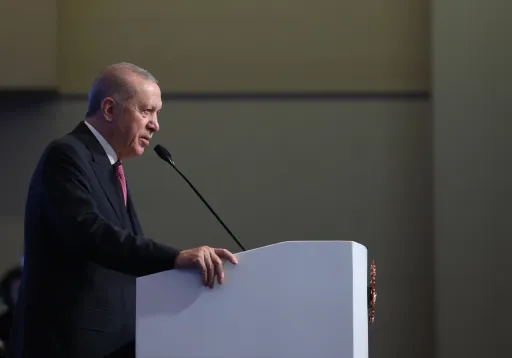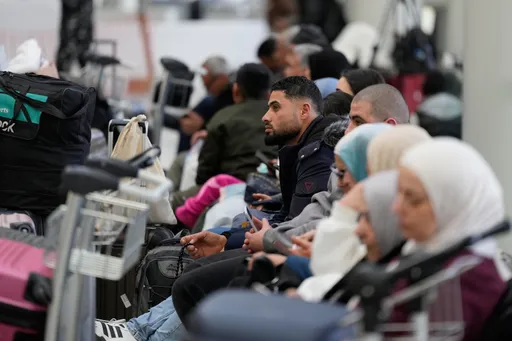More than 100 days have passed since the October 7 attack on Israel and the launch of Tel Aviv's brutal offensive in Gaza.
Over that span, Arab and Muslim Americans (among those closest to the conflict through shared lineage or tradition) witnessed Palestinian suffering broadcast in real time, with the knowledge that their country was playing an active role in enabling the conflict.
The United States has had a longstanding and close relationship with Israel. But this alliance did not have to mean that Washington would empower Israeli Prime Minister Benjamin Netanyahu to prosecute the war in Gaza however he saw fit.
The lifting of virtually all constraints on Israel was a choice - one that US President Joe Biden consciously made. Even his rhetoric often comes off as callous and one-sided.
Early on in the conflict, Biden infamously declared he had “no confidence” in the tally of Palestinian casualties to that point while, more recently, in an official statement marking 100 days since October 7, he ignored Palestinians altogether.
Thus it is not surprising that Biden is losing support among Arabs and Muslim Americans. Recent polls indicate that less than 20 percent of Arabs and less than 10 percent of Muslims would vote for Biden if the presidential election were held today. Of course, we are still months away from anyone casting a ballot and, presumably, anything can happen between now and November.
Yet, given Biden's indelible link to this conflict, Netanyahu's repeated warning that the assault on Gaza will last for “many more months,” and the parties' starkly different visions for Gaza's future once hostilities cease, it is hard to imagine that Arabs and Muslims will revert back to their pre-October 7 priorities once Election Day rolls around.
So will all those lost Biden votes migrate over to Donald Trump? Not necessarily. Third-party candidate Cornel West, for example, is mounting a campaign that is conspicuously (and perhaps uniquely) courting the Arab and Muslim vote (a strategy reminiscent of the Bernie Sanders campaign in 2020).
Similarly, the Arab American Institute reports that while support for Biden has dropped precipitously, Trump’s support only increased mildly, from 35 percent (in 2020) to 40 percent (in 2023). A large percentage of respondents either planned to vote third party (17 percent) or were unsure of who they would support (25 percent).
This latter figure suggests that abstention or leaving the top of the ticket blank may prove to be a popular option in November.
Of course, even if a vote is not cast affirmatively for Trump, he is still ultimately the beneficiary of any third-party/abstention campaign against Biden.
That is, assuming that Trump is on the ballot in November. Between multiple court trials, the Supreme Court ruling on whether he is even allowed to run for office, and the potential (however slim) for a drawn-out Republican primary, there is at least some plausible chance that we will not have a rematch of the 2020 presidential election.
All that said, Trump vs. Biden at the top of the ballot remains the likeliest scenario, which means the former president could potentially reclaim his office. The likelihood of Biden losing his bid for reelection hinges on a number of factors, including the one that traditionally exerts the greatest influence on electoral outcomes: the economy. Other domestic issues like abortion access and even the maintenance of democracy itself will also motivate turnout and vote choice.
However, the chief indicator of Biden’s fate could be the extent to which foreign policy is a salient topic on voters’ minds as they cast their ballot.
This is all but assured to be the case among Arabs and Muslims, whose turnout could prove pivotal in several key swing states, including Michigan, Virginia, Georgia, Pennsylvania and Arizona. Indeed, in those battlegrounds where these communities are more concentrated, their mass defection alone could mean a net loss for Biden as large as his 2020 margin of victory in those states.
This is not to say that Trump would offer a more even-handed approach to Gaza or, indeed, a more effective policy on any international issue. The harsh reality is that Arabs and Muslims will likely contribute to bringing someone into power who champions both foreign and domestic policies that are detrimental to these communities.
On the foreign front, Trump presided over the relocation of the US embassy in Israel from Tel Aviv to Jerusalem, undermining a key component of final status negotiations for a Palestinian state. In addition, he spearheaded the “Abraham Accords,” which bypassed Palestinians altogether while trying to build diplomatic ties between Israel and its regional neighbours.
Domestically too, Trump has advocated for a number of policies that would negatively affect Arab and Muslim Americans. Most notoriously, during the beginning of his first presidential term, he pushed through the so-called “Muslim ban,” which mainly barred citizens from Muslim-majority countries from travelling to the US.
Trump has vowed to reinstate and strengthen this ban should he gain back the presidency. Arabs, Muslims, and myriad other minority groups would also be negatively affected by the weakening of liberal-democratic norms and protections that will likely accompany a new Trump administration.
Here, then, is the question that Arab and Muslim Americans must answer come November: are the risks of a second Trump presidency worth bearing for the chance at changing the Democratic party’s stance towards Israel? Much like a gambit in chess, this electoral strategy sacrifices in the short-term to gain an advantage in the long-term.
For some, however, the only consideration is maintaining their dignity in the voting booth. In which case, no strategic calculation is likely to compel them to vote for the “lesser of two evils.”
Whether it is worth taking this calculated risk comes down to two key forecasts: 1) The amount of lasting harm a second Trump presidency would have on public policy and democratic institutions, and 2) The likelihood of the Democratic party changing its overly deferential posture towards Israel. The weight and probability that voters assign each of these consequences should ultimately guide any strategic approach to voting in November and beyond.
For some, however, the only consideration is maintaining their dignity in the voting booth. In which case, no strategic calculation is likely to compel them to vote for the “lesser of two evils.”























